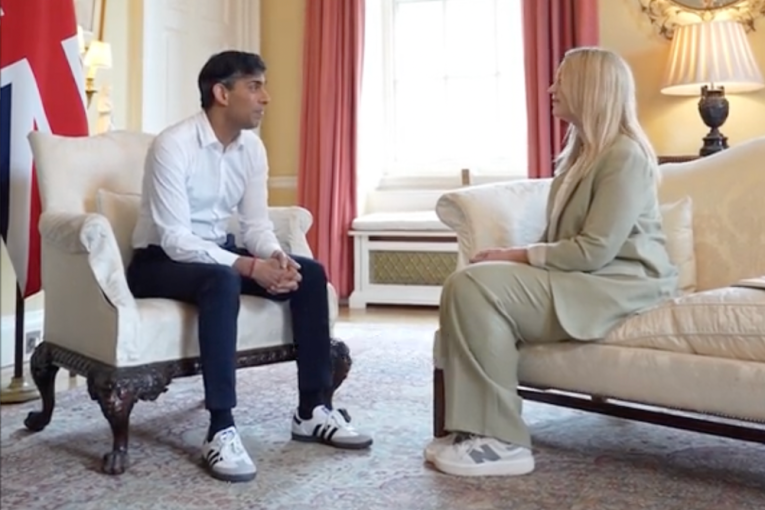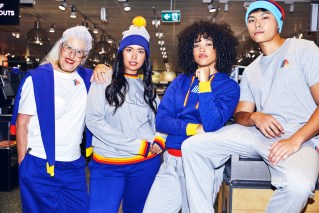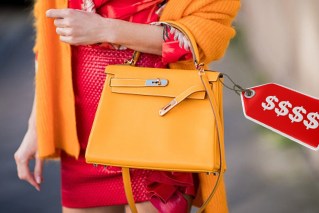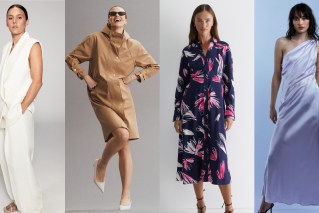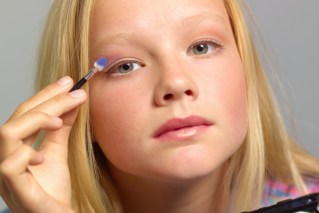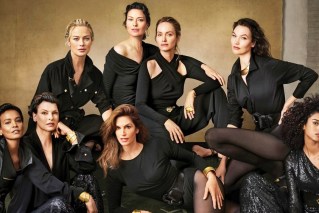Message received: The power and impact of ‘protest fashion’

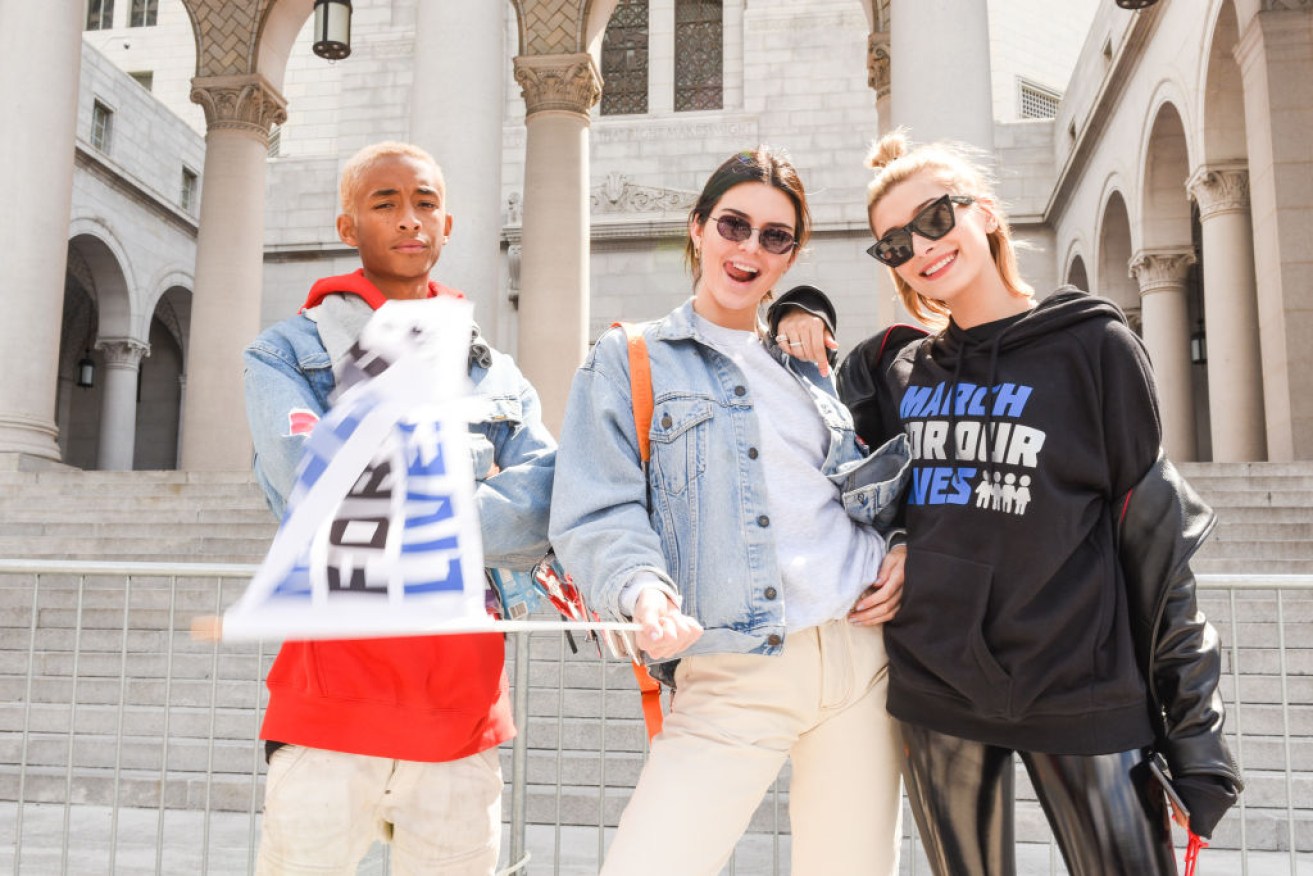
Kendall Jenner (centre) and Hailey Baldwin at the March For Our Lives protest in Los Angeles. Photo: Getty
The recent March For Our Lives protests in the United States brought a wave of models and celebrities to the streets.
They included the mega-influential Kendall Jenner, Hailey Baldwin and Kaia Gerber, 16-year-old model daughter of Cindy Crawford, who together reach more than a staggering 100 million social media followers.
‘Protest chic’ is a now a thing, of course, and there they were posing for the camera looking impossibly gorgeous in denim shorts with biker boots, leather jackets, cute sunnies and leather leggings.
I was about to unkindly roll my eyes until I noticed Kendall’s denim jacket had an anti-Trump message on the back that said ‘Not My President’.
Good on her! Her father was, and still is, a Donald Trump supporter despite the President’s odious views on transgender people serving in the military.
Kendall copped a lot of flak for her awkward appearance in a tone-deaf, “protest themed” Pepsi ad, so it is a very positive move to join these kids who are marching for changes to the gun laws.
Fashion as protest has a long history, from the early Edwardian suffragettes who specifically wore feather boas and picture hats in order to avoid being accused of being eccentric or ‘manly’, thus cloaking their subversive activities.
From the peace symbol of the 1960s, to the Gay Pride Rainbow of the 1970s and the bright pink ‘pussy’ hats of the Women’s March against Trump in 2017 (as a retort to his “grab ’em by the pussy” comments), protest fashion is speaking much louder than words.

A protester with a ‘pussy’ hat at a Women’s March in New York. Photo: Getty
Feminism in particular has informed several trends, one being the current revival of the beret, notable worn by Beyonce as a nod to the Black Panther movement and ’70’s political activists such Angela Davis.
Since her appointment in 2016, Dior designer Maria Grazia Chiuri has sent out collections which include T-shirts emblazoned with slogans such as “We should all be feminists” which were, of course, very quickly knocked off by the High Street stores.
But the message can seem a bit flat and try-hard when it comes on a $600-plus designer T-shirt.
Far more effective are some of the T-shirt-ready slogans that have been coming from the US, as a reaction to the current political and social upheaval and the powerful #MeToo feminist movement.
There is ‘Nasty Woman’, a Trump insult directed at Hillary Clinton and quickly claimed by many women as a badge of honour.

Fashion retailer Lyst’s T-shirts featuring victims of Donald Trump attacks. Photo: Getty
There is ‘Reclaiming My Time’ by the wonderful congresswoman Maxine Waters, which could pretty be much used to protest anything, but is very useful in the face of mansplaining.
I’ve been very impressed by the women silently protesting anti-abortion laws on Washington’s Capitol Hill and outside state legislatures by dressing in the chilling red dresses and white hats from The Handmaid’s Tale.
But the last word must come from Sex and the City‘s Cynthia Nixon who is running for governor of New York. After being dismissed as an “unqualified lesbian” by a political rival, Nixon’s campaign is turning the slogan into branded merchandise.
Message received.
